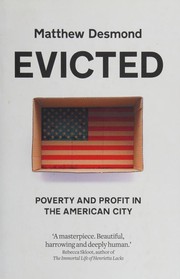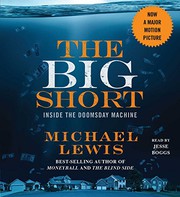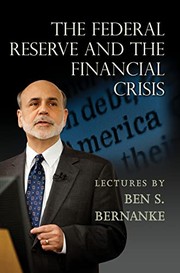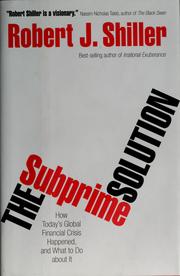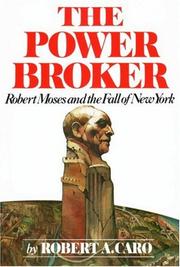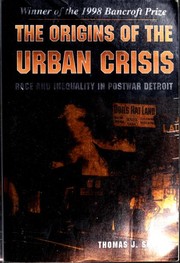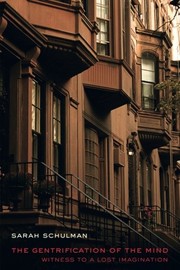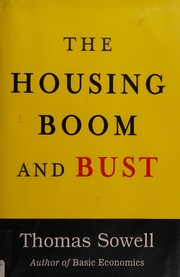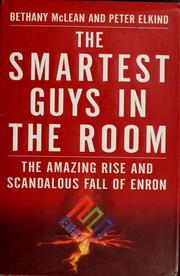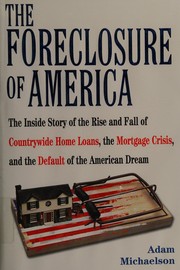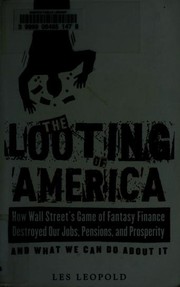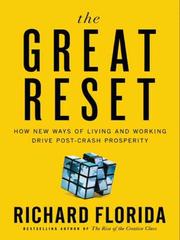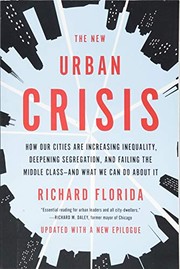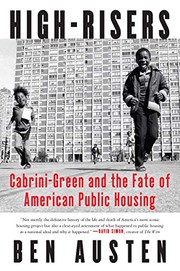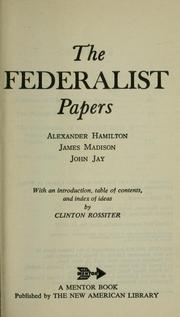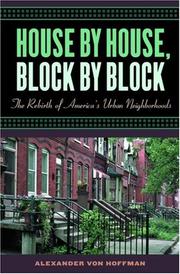If you’re looking for a compelling book on housing that delves into the complexities of urban development, architecture, and the social implications of housing, you’ve come to the right place. Whether you’re an urban planner, architect, or simply interested in the topic, these housing books will provide you with thought-provoking insights and perspectives. From historical analyses to futuristic visions, these 20 best books about housing cover a wide range of topics, offering readers a comprehensive understanding of the challenges and opportunities in the realm of housing. Let’s explore these captivating reads and discover the fascinating world of housing through the lens of these insightful authors.
Contents
- 1 20 Best Housing Books
- 2 Evicted: Poverty and Profit in the American City
- 3 The Color of Law: A Forgotten History of How Our Government Segregated America
- 4 The Death and Life of Great American Cities
- 5 The Big Short: Inside the Doomsday Machine
- 6 The Federal Reserve and the Financial Crisis
- 7 The Subprime Solution: How Today’s Global Financial Crisis Happened, and What to Do about It
- 8 The Power Broker: Robert Moses and the Fall of New York
- 9 The Origins of the Urban Crisis: Race and Inequality in Postwar Detroit
- 10 The Gentrification of the Mind: Witness to a Lost Imagination
- 11 The Housing Boom and Bust
- 12 The Smartest Guys in the Room: The Amazing Rise and Scandalous Fall of Enron
- 13 The Foreclosure of America: The Inside Story of the Rise and Fall of Countrywide Home Loans
- 14 The Looting of America: How Wall Street’s Game of Fantasy Finance Destroyed Our Jobs, Pensions, and Prosperity—and What We Can Do about It
- 15 The Great Reset: How New Ways of Living and Working Drive Post-Crash Prosperity
- 16 The New Urban Crisis: How Our Cities Are Increasing Inequality, Deepening Segregation, and Failing the Middle Class—and What We Can Do About It
- 17 The Housing Policy Revolution: Networks and Neighborhoods
- 18 High-Risers: Cabrini-Green and the Fate of American Public Housing
- 19 The Federalist Papers
- 20 House by House, Block by Block: The Rebirth of America’s Urban Neighborhoods
- 21 The Great American Housing Bubble: The Road to Collapse
- 22 Final Thoughts on Best Housing Books
- 23
20 Best Housing Books
Evicted: Poverty and Profit in the American City
by Matthew Desmond
Evicted: Poverty and Profit in the American City by Matthew Desmond is a powerful and eye-opening book about the devastating impact of eviction on the lives of the poor in America. Desmond, a sociologist, immerses himself in the lives of families in Milwaukee, shedding light on the harsh reality of poverty and the struggle to keep a roof over their heads. Through vivid storytelling and in-depth research, Desmond exposes the intricate web of poverty, housing instability, and profit-driven eviction practices.
This compelling housing book provides a deep understanding of the systemic issues that perpetuate poverty and inequality, and the ways in which the housing crisis disproportionately affects low-income families. Desmond’s work is a poignant exploration of the human cost of eviction, and the profound implications it has on individuals, families, and communities. Evicted is a must-read for anyone seeking to gain insight into the complex and often overlooked challenges faced by those who are struggling to secure and maintain stable housing.
The Color of Law: A Forgotten History of How Our Government Segregated America
by Richard Rothstein
The Color of Law: A Forgotten History of How Our Government Segregated America by Richard Rothstein is a compelling and eye-opening book on housing in America. Rothstein meticulously details how government policies and practices have systematically enforced segregation in housing, leading to the racial divide that still exists today. Through thorough research and engaging storytelling, Rothstein sheds light on the lesser-known history of discriminatory housing practices, from redlining to racial zoning, and how these policies have shaped the landscape of American cities.
This book about housing challenges the commonly held belief that segregation is solely the result of individual choices and economic disparities. Rothstein argues that the government played a central role in creating and maintaining segregation, and he offers a compelling argument for the importance of acknowledging this history in order to address the ongoing effects of segregation. The Color of Law is a must-read for anyone interested in understanding the complex and far-reaching impact of housing policies on American society.
The Death and Life of Great American Cities
by Jane Jacobs
The Death and Life of Great American Cities by Jane Jacobs is a groundbreaking book on urban planning and city living. In this influential book about housing, Jacobs challenges the conventional wisdom on city planning and offers a fresh perspective on what makes a city vibrant and livable. She argues that the key to a successful city is diversity, both in terms of land use and population, and emphasizes the importance of mixed-use neighborhoods and pedestrian-friendly streets.
Jacobs draws on her own observations and experiences living in cities to illustrate her points, and she provides insightful analysis of the social and economic dynamics that shape urban life. With a keen eye for detail and a deep understanding of the complexities of city living, Jacobs presents a compelling case for rethinking traditional approaches to urban planning.
Whether you’re a city dweller, urban planner, or simply interested in the dynamics of urban life, this housing book is a must-read that will challenge your assumptions and inspire new ways of thinking about the cities we live in.
The Big Short: Inside the Doomsday Machine
by Michael Lewis
The Big Short: Inside the Doomsday Machine by Michael Lewis is a captivating book about housing that delves into the 2008 financial crisis. Lewis takes readers on a thrilling journey through the world of subprime mortgages, collateralized debt obligations, and credit default swaps, exposing the intricate web of greed and ignorance that led to the housing market collapse.
Through the stories of a handful of contrarian investors who saw the impending disaster and bet against the housing market, Lewis offers a fascinating insight into the inner workings of Wall Street and the hubris of the banking industry. The book provides a compelling narrative that unravels the complexities of the financial world, making it accessible to both finance experts and lay readers.
With his trademark wit and sharp storytelling, Lewis paints a vivid picture of the individuals who foresaw the impending crisis and profited from it, while also shedding light on the systemic failures that allowed the housing bubble to grow to catastrophic proportions. The Big Short is a must-read for anyone seeking to understand the intricacies of the financial meltdown and the housing book market’s role in it.
The Federal Reserve and the Financial Crisis
by Ben S. Bernanke
The Federal Reserve and the Financial Crisis by Ben S. Bernanke provides an insightful analysis of the 2008 financial crisis and the role of the Federal Reserve in addressing it. This compelling book delves into the complexities of the crisis, offering a comprehensive understanding of the events that led to the housing market collapse and the subsequent economic turmoil. Bernanke, a former chairman of the Federal Reserve, offers a firsthand account of the central bank’s response to the crisis, outlining the unprecedented measures taken to stabilize the financial system and prevent a complete economic meltdown. Through meticulous research and clear explanations, Bernanke sheds light on the intricate workings of the Federal Reserve and its critical role in managing financial crises. This book about housing is a must-read for anyone seeking a deeper understanding of the 2008 financial crisis and the challenges faced by central banks in times of economic turmoil.
The Subprime Solution: How Today’s Global Financial Crisis Happened, and What to Do about It
by Robert J. Shiller
The Subprime Solution by Robert J. Shiller is a compelling book about housing that delves deep into the roots of the global financial crisis of 2008. Shiller, an acclaimed economist, provides an insightful analysis of the subprime mortgage market and its impact on the economy. He explores the reasons behind the crisis, pointing to the excessive risk-taking and financial innovation that led to the housing market collapse.
Shiller doesn’t just stop at diagnosing the problem; he offers practical solutions for preventing future crises and mitigating the current one. His approach is both comprehensive and accessible, making it a must-read for anyone seeking a better understanding of the complex financial system and its effects on society.
With its clear explanations and thought-provoking insights, The Subprime Solution is an essential read for anyone interested in understanding the intricacies of the global financial crisis and finding ways to address it. Shiller’s expertise and engaging writing style make this book on housing a valuable resource for readers looking to make sense of the economic challenges we face.
The Power Broker: Robert Moses and the Fall of New York
by Robert A. Caro
The Power Broker: Robert Moses and the Fall of New York by Robert A. Caro is a monumental biography that delves into the life and impact of Robert Moses, one of the most influential figures in the history of urban development and politics. This gripping narrative explores how Moses, a master builder and city planner, reshaped the landscape of New York City and the surrounding areas, leaving a lasting legacy that still affects the city today.
Caro’s meticulous research and compelling storytelling shed light on Moses’ rise to power, his ruthless tactics, and his vision for modernizing the city. The book reveals how Moses wielded his authority to transform the urban fabric, from building highways and bridges to shaping public housing and parks. With a critical eye, Caro also exposes the detrimental effects of Moses’ unchecked power, including the displacement of communities and the degradation of public spaces.
This housing book is a must-read for anyone interested in urban planning, politics, and the complex interplay between power and public welfare.
The Origins of the Urban Crisis: Race and Inequality in Postwar Detroit
by Thomas J. Sugrue
The Origins of the Urban Crisis: Race and Inequality in Postwar Detroit by Thomas J. Sugrue is a groundbreaking book about the history of urban development and inequality in Detroit. Sugrue explores the complex interplay of race, housing, and economic policies that led to the decline of the city. This compelling housing book provides a comprehensive analysis of the factors that contributed to the urban crisis in Detroit, from racial segregation to deindustrialization, and the impact of these issues on the city’s residents.
Sugrue’s meticulous research and compelling narrative shed light on the deep-rooted inequalities and systemic racism that have shaped Detroit’s urban landscape. The book offers a nuanced understanding of the challenges facing postwar cities and the enduring legacy of discriminatory housing practices. This housing book is essential reading for anyone interested in urban history, social inequality, and the impact of policies on marginalized communities.
The Gentrification of the Mind: Witness to a Lost Imagination
by Sarah Schulman
The Gentrification of the Mind: Witness to a Lost Imagination by Sarah Schulman is a powerful and thought-provoking book about the impact of urban development on the creative and cultural landscape of a city. Schulman explores the ways in which gentrification has reshaped the social and artistic fabric of New York City, drawing on her own experiences as a writer and activist to paint a vivid picture of the changes that have taken place. Through a combination of personal anecdotes, historical analysis, and social commentary, Schulman delves into the ways in which gentrification has displaced marginalized communities and stifled the creative expression of artists and thinkers. This compelling housing book offers a poignant reflection on the loss of diversity and imagination in the wake of urban redevelopment, and serves as a call to action for readers to critically examine the impact of gentrification on their own communities.
The Housing Boom and Bust
by Thomas Sowell
The Housing Boom and Bust by Thomas Sowell is an insightful book on the cyclical nature of the real estate market. Sowell, a renowned economist, delves into the causes and consequences of the housing market’s ups and downs, drawing on historical examples and economic theories to shed light on the complexities of this crucial sector of the economy. The book explores the factors that contribute to housing booms, such as low interest rates and speculative behavior, as well as the repercussions of housing busts, including foreclosures and financial instability. Sowell’s clear and accessible writing style makes this book about housing a valuable resource for anyone seeking to understand the intricacies of the real estate market, whether as a professional investor or an interested observer. With its comprehensive analysis and compelling insights, The Housing Boom and Bust provides a thought-provoking exploration of the dynamics of the housing market, making it a must-read for anyone interested in the intersection of economics and the housing industry.
The Smartest Guys in the Room: The Amazing Rise and Scandalous Fall of Enron
by Bethany McLean and Peter Elkind
The Smartest Guys in the Room: The Amazing Rise and Scandalous Fall of Enron by Bethany McLean and Peter Elkind is a captivating exposé of one of the most infamous corporate scandals in history. This gripping book delves into the meteoric rise of Enron, a company once hailed as a paragon of innovation and success, only to crumble spectacularly amidst a web of deceit, corruption, and greed.
McLean and Elkind meticulously unravel the complex web of financial trickery and deceptive practices that led to Enron’s downfall, offering a chilling insight into the dark underbelly of corporate America. With a keen eye for detail and a compelling narrative style, the authors paint a vivid portrait of the key players involved in Enron’s demise, showcasing the devastating impact of their actions on employees, investors, and the economy at large.
This book is a must-read for anyone interested in corporate ethics, financial fraud, and the precarious nature of unchecked power in the business world. It’s a cautionary tale that continues to resonate in today’s corporate landscape, serving as a stark reminder of the perils of unchecked ambition and moral compromise.
The Foreclosure of America: The Inside Story of the Rise and Fall of Countrywide Home Loans
by Adam Michaelson
The Foreclosure of America: The Inside Story of the Rise and Fall of Countrywide Home Loans is a compelling book on housing that delves into the intricate details of one of the biggest mortgage lenders in the United States. Adam Michaelson provides readers with an inside look at the company’s meteoric rise and its eventual collapse, shedding light on the practices and policies that led to the 2008 housing market crash.
Michaelson’s thorough research and insightful analysis offer a comprehensive understanding of the factors that contributed to the crisis, making this housing book an essential read for anyone interested in the intricacies of the mortgage industry and the broader implications of the housing market’s collapse. With its engaging narrative and in-depth exploration of the financial meltdown, The Foreclosure of America is a must-read for those seeking to comprehend the complexities of the housing crisis and its far-reaching impact on the economy.
The Looting of America: How Wall Street’s Game of Fantasy Finance Destroyed Our Jobs, Pensions, and Prosperity—and What We Can Do about It
by Les Leopold
The Looting of America by Les Leopold is a hard-hitting exposé of the financial crisis that rocked the United States in 2008. In this eye-opening book, Leopold delves into the world of Wall Street and how their reckless and manipulative practices led to the destruction of jobs, pensions, and prosperity for millions of Americans. Through meticulous research and compelling storytelling, he uncovers the intricate web of greed and deceit that fueled the housing market bubble and subsequent collapse, leaving countless families in financial ruin.
Leopold doesn’t stop at simply pointing out the problems, he also offers practical solutions and calls for action to prevent a similar catastrophe from happening again. With a powerful blend of economic analysis and social commentary, The Looting of America is a must-read for anyone seeking to understand the root causes of the financial crisis and what can be done to prevent it in the future. This book about housing is a wake-up call for all who care about the stability and fairness of our financial system.
The Great Reset: How New Ways of Living and Working Drive Post-Crash Prosperity
by Richard Florida
The Great Reset: How New Ways of Living and Working Drive Post-Crash Prosperity by Richard Florida is a thought-provoking book that explores the impact of the 2008 financial crisis on our society and economy. Florida argues that the crisis has led to a fundamental shift in the way we live and work, and he identifies the key drivers of this change. Through insightful analysis and compelling evidence, the author paints a picture of a new economic landscape, where innovation, creativity, and technology play a central role in driving prosperity.
This book delves into the importance of urbanization, the rise of the creative class, and the transformation of our living spaces. Florida also discusses the impact of these changes on our communities, our businesses, and our overall well-being. The Great Reset is a must-read for anyone interested in understanding the dynamics of the modern economy and the profound shifts taking place in our society. Whether you’re a policy maker, a business leader, or simply a curious reader, this book offers valuable insights into the future of work and living.
The New Urban Crisis: How Our Cities Are Increasing Inequality, Deepening Segregation, and Failing the Middle Class—and What We Can Do About It
by Richard Florida
The New Urban Crisis by Richard Florida is a thought-provoking book on urban development and its impact on inequality and segregation. Florida argues that the rise of the new urban crisis is exacerbating the gap between the rich and the poor, leading to deeper segregation and failing the middle class in our cities. Through a combination of research, case studies, and personal insights, Florida explores the factors contributing to this crisis, including the housing affordability crisis, the decline of the middle class, and the concentration of wealth in superstar cities.
However, the book also offers a glimmer of hope by providing potential solutions to address these challenges. Florida puts forth ideas for creating more inclusive and equitable cities, such as investing in affordable housing, promoting economic diversity, and fostering innovation and creativity. With its engaging storytelling and well-researched analysis, The New Urban Crisis is a must-read for anyone interested in understanding the complex dynamics of urban development and seeking solutions to build more inclusive and sustainable cities.
The Housing Policy Revolution: Networks and Neighborhoods
by David J. Erickson
The Housing Policy Revolution: Networks and Neighborhoods by David J. Erickson is a groundbreaking book on housing that delves into the complex web of networks and neighborhoods that shape housing policy. Erickson explores the evolution of housing policy, from its historical roots to its modern-day challenges, and offers a fresh perspective on the interconnectedness of housing issues.
This housing book examines the role of networks in shaping housing policy and the impact of neighborhood dynamics on housing outcomes. Erickson’s insightful analysis sheds light on the intricate relationships between stakeholders, policymakers, and residents, and offers innovative solutions for addressing the housing crisis.
Through rich case studies and compelling narratives, Erickson paints a vivid picture of the housing landscape, highlighting the diverse perspectives and experiences that shape policy decisions. The Housing Policy Revolution is a must-read for anyone interested in understanding the complexities of housing policy and seeking new ways to address the challenges facing our communities.
High-Risers: Cabrini-Green and the Fate of American Public Housing
by Ben Austen
High-Risers: Cabrini-Green and the Fate of American Public Housing by Ben Austen is a compelling book about the rise and fall of the Cabrini-Green public housing development in Chicago. Austen delves into the complex history of public housing in America, using Cabrini-Green as a microcosm to explore the social, political, and economic forces that shaped these communities. Through vivid storytelling and in-depth research, the author paints a vivid picture of the residents who called Cabrini-Green home, the challenges they faced, and the impact of its eventual demolition. This housing book sheds light on the systemic issues that have plagued public housing in the United States, offering a thought-provoking analysis of the policies and practices that have shaped these communities. Austen’s engaging narrative and insightful commentary make High-Risers a must-read for anyone interested in urban development, social justice, and the complex dynamics of public housing in America.
The Federalist Papers
by James Madison, Alexander Hamilton, and John Jay
The Federalist Papers is a collection of 85 essays written by James Madison, Alexander Hamilton, and John Jay, which were originally published in newspapers to promote the ratification of the United States Constitution. This influential work delves into the principles of a strong central government, the separation of powers, and the necessity of checks and balances. The essays provide valuable insight into the founders’ intentions and the reasoning behind the Constitution’s structure.
With its eloquent arguments and persuasive language, The Federalist Papers remains a timeless and essential read for anyone interested in American history and political philosophy. The authors’ profound understanding of governance and their ability to articulate complex ideas in a clear and compelling manner make this book a foundational text in the study of political science and constitutional law. Whether you’re a history enthusiast, a law student, or simply curious about the foundations of the American government, The Federalist Papers is a must-read for anyone with an interest in the principles of governance.
House by House, Block by Block: The Rebirth of America’s Urban Neighborhoods
by Alexander von Hoffman
House by House, Block by Block: The Rebirth of America’s Urban Neighborhoods by Alexander von Hoffman is a compelling book about the revitalization of urban communities in the United States. Von Hoffman provides an insightful and comprehensive examination of the challenges and successes of urban renewal, offering a detailed account of the transformation of once-declining neighborhoods.
This housing book delves into the stories of individuals, community organizations, and local governments who have worked tirelessly to revitalize their neighborhoods, block by block. Von Hoffman’s engaging writing style and in-depth research bring to life the struggles and triumphs of those involved in the renewal process, making for a captivating and inspiring read.
House by House, Block by Block offers valuable insights into the complex dynamics of urban revitalization and serves as a testament to the resilience and determination of communities to create positive change. This book about housing is a must-read for anyone interested in the transformation of urban neighborhoods and the power of community-driven initiatives.
The Great American Housing Bubble: The Road to Collapse
by Robert M. Campbell
The Great American Housing Bubble: The Road to Collapse by Robert M. Campbell is a compelling book about the housing market crisis that rocked the United States. Campbell takes readers on a journey through the events leading up to the collapse, offering valuable insights into the factors that contributed to the housing bubble. Through meticulous research and analysis, he uncovers the risky lending practices, speculative investing, and government policies that ultimately led to the downfall of the housing market.
This eye-opening book about housing provides a comprehensive understanding of the complexities behind the crisis, shedding light on the impact it had on the economy and the lives of millions of Americans. Campbell’s thorough examination of the housing bubble offers readers a thought-provoking look at the interconnected forces that led to the collapse, making it a must-read for anyone interested in understanding the intricacies of the housing market and the catastrophic events that unfolded.
Final Thoughts on Best Housing Books
In conclusion, these 20 best books about Housing provide a comprehensive and insightful look into the various aspects of housing, from its historical significance to its impact on society and individuals. Whether you’re interested in urban planning, architecture, or social justice, there’s a book on this list that will surely pique your interest. So pick up one of these books and delve into the fascinating world of housing!
Which book about Housing is best?
The best book on Housing can vary with personal preference, but three widely recommended titles are:
- Evicted: Poverty and Profit in the American City by Matthew Desmond,
- The Color of Law: A Forgotten History of How Our Government Segregated America by Richard Rothstein,
- The Death and Life of Great American Cities by Jane Jacobs.
Each offers valuable insights and could be a great starting point.
What are the best books to learn about Housing?
For those looking to learn about Housing, there is a wealth of literature that can provide a comprehensive understanding of the subject. Some of the most highly recommended books include:
- Evicted: Poverty and Profit in the American City by Matthew Desmond,
- The Color of Law: A Forgotten History of How Our Government Segregated America by Richard Rothstein,
- The Death and Life of Great American Cities by Jane Jacobs,
- The Big Short: Inside the Doomsday Machine by Michael Lewis,
- The Federal Reserve and the Financial Crisis by Ben S. Bernanke,
- The Subprime Solution: How Today’s Global Financial Crisis Happened, and What to Do about It by Robert J. Shiller,
- The Power Broker: Robert Moses and the Fall of New York by Robert A. Caro,
- The Origins of the Urban Crisis: Race and Inequality in Postwar Detroit by Thomas J. Sugrue,
- The Gentrification of the Mind: Witness to a Lost Imagination by Sarah Schulman,
- The Housing Boom and Bust by Thomas Sowell
These books offer a range of perspectives on Housing, covering various aspects and approaches to the subject.
What are the best books about Housing?
The best books about Housing are:
- Evicted: Poverty and Profit in the American City by Matthew Desmond,
- The Color of Law: A Forgotten History of How Our Government Segregated America by Richard Rothstein,
- The Smartest Guys in the Room: The Amazing Rise and Scandalous Fall of Enron by Bethany McLean and Peter Elkind,
- The Foreclosure of America: The Inside Story of the Rise and Fall of Countrywide Home Loans by Adam Michaelson,
- The Origins of the Urban Crisis: Race and Inequality in Postwar Detroit by Thomas J. Sugrue,
- The Subprime Solution: How Today’s Global Financial Crisis Happened, and What to Do about It by Robert J. Shiller.
Each offers unique insights into the subject. While these books about Housing are highly regarded, it’s important to note that any list of ‘best’ books is subjective and reflects a range of opinions.
What are the best Housing books of all time?
Choosing the best Housing books of all time can vary depending on who you ask, but five titles that are often celebrated include
- Evicted: Poverty and Profit in the American City by Matthew Desmond,
- The Color of Law: A Forgotten History of How Our Government Segregated America by Richard Rothstein,
- The Federal Reserve and the Financial Crisis by Ben S. Bernanke,
- The Origins of the Urban Crisis: Race and Inequality in Postwar Detroit by Thomas J. Sugrue,
- and The Smartest Guys in the Room: The Amazing Rise and Scandalous Fall of Enron by Bethany McLean and Peter Elkind.
Each of these books has made a significant impact in the field of Housing and continues to be influential today.

